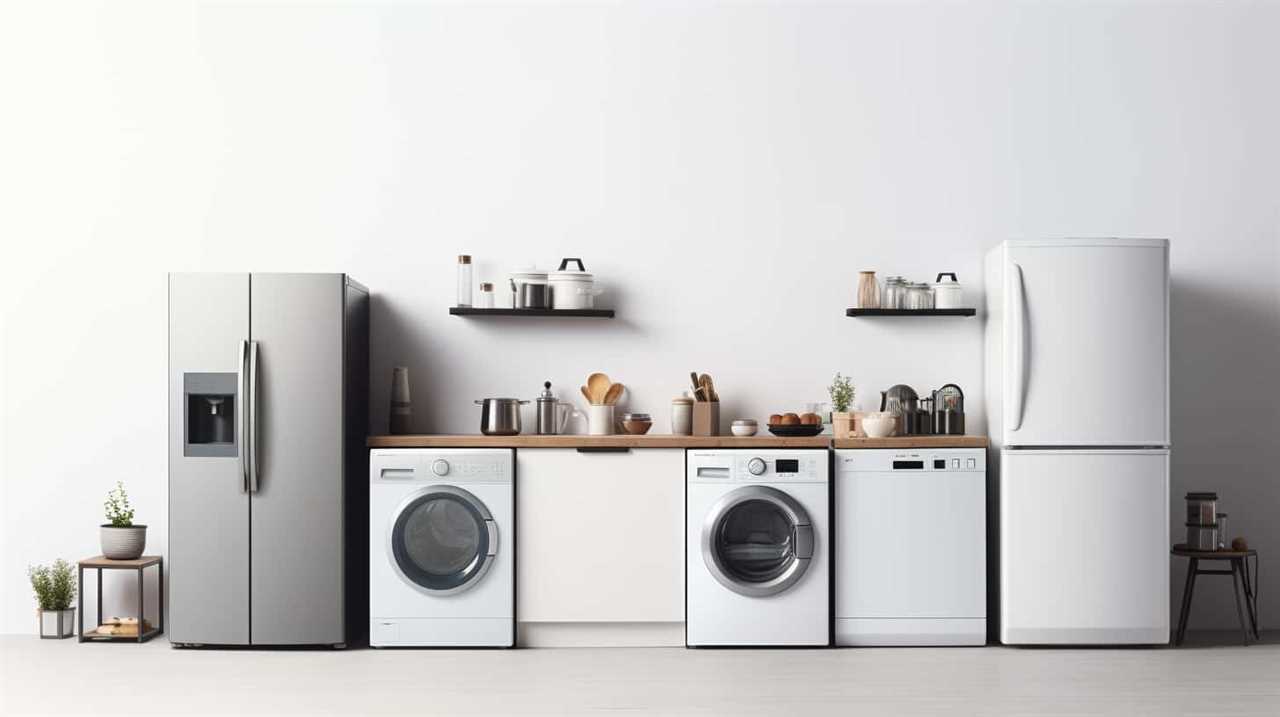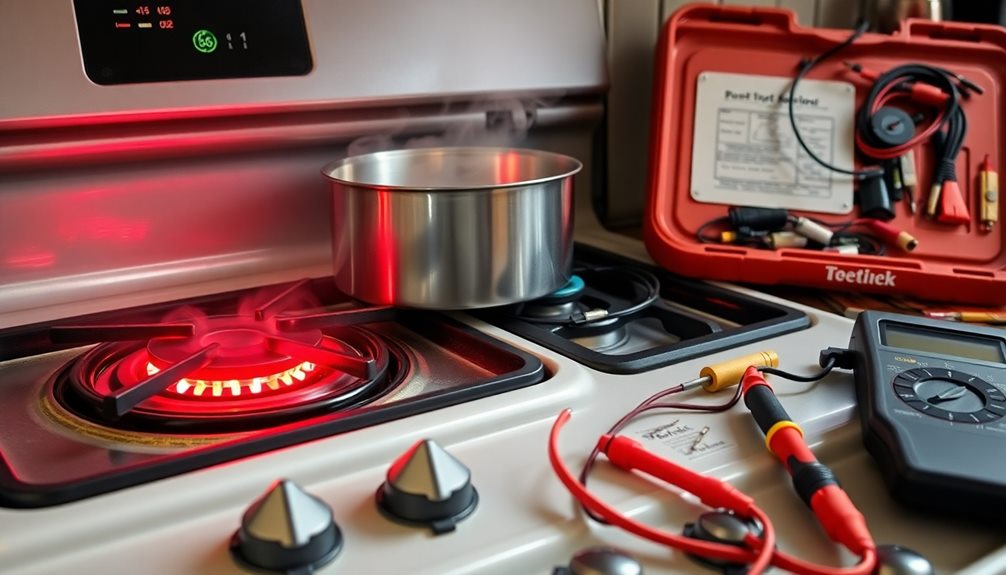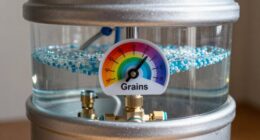Is it possible to recycle electrical appliances?
We all know the importance of being environmentally conscious, but when it comes to recycling our electronic devices, do we really understand the impact?
In this article, we will delve into the scientific, analytical, and informative aspects of recycling electrical appliances. From the environmental benefits to the innovative technologies being used, we will explore how individuals can contribute to the effort of electronic recycling.
So, let’s dive in and discover the possibilities of recycling our beloved gadgets.

Key Takeaways
- Recycling electrical appliances reduces waste in landfills.
- It helps recover valuable materials for reuse.
- Recycling electrical appliances provides economic incentives.
- Government regulations support proper disposal and recycling practices for electrical appliances.
The Importance of Recycling Electrical Appliances
Recycling electrical appliances is crucial for the sustainability of our environment and the conservation of valuable resources. The importance of this practice can’t be overstated. Not only does it reduce the amount of waste ending up in landfills, but it also helps to recover valuable materials that can be reused in the production of new appliances.
Additionally, recycling electrical appliances has economic incentives. Recovering and reusing materials reduces the need for raw material extraction, which can be costly and environmentally damaging. Moreover, many governments have recognized the significance of recycling electrical appliances and have implemented regulations to encourage and enforce proper disposal and recycling practices. These regulations often include the establishment of collection centers and the implementation of strict standards for recycling processes.
Environmental Benefits of Recycling Electronics
One major benefit of recycling electronics is the reduction of electronic waste in our environment. This not only helps to conserve valuable resources but also prevents the release of harmful toxins and pollutants into the air, water, and soil.
Here are four environmental benefits of recycling electronics:

- Conservation of Resources: Recycling electronics allows for the recovery of valuable materials such as gold, silver, and copper, reducing the need for mining and the associated environmental impacts.
- Reduction of Pollution: By properly recycling electronics, we can prevent the release of hazardous substances like lead, mercury, and cadmium, which can contaminate ecosystems and pose health risks to humans and wildlife.
- Energy Savings: Recycling electronics requires less energy compared to extracting and processing raw materials, resulting in reduced greenhouse gas emissions and less reliance on fossil fuels.
- Landfill Space Preservation: Recycling electronics helps to reduce the amount of electronic waste that ends up in landfills, minimizing the strain on valuable land resources and preventing potential contamination of groundwater.
Economic Benefits of Recycling Electrical Appliances
When it comes to the economic benefits of recycling electrical appliances, there are several key points to consider.
Firstly, recycling these appliances creates job opportunities in the recycling industry, contributing to local and national economies.
Secondly, manufacturers can save on production costs by using recycled materials in the manufacturing process, leading to potential cost savings.
Lastly, recycling electrical appliances helps conserve valuable resources, such as rare metals and minerals, reducing the need for costly extraction and mining activities.

Job Creation Opportunities
At present, we’re witnessing a surge in job creation opportunities through the economic benefits of recycling electrical appliances. This not only helps in reducing waste and protecting the environment but also contributes to the growth of local economies.
Here are four ways in which job creation is being stimulated:
- Increased demand for workers in recycling facilities: As more electrical appliances are being recycled, there’s a need for skilled workers to operate the facilities and handle the recycling process.
- Job training programs: To meet the demand for skilled workers, job training programs are being implemented to provide individuals with the necessary skills to work in the recycling industry.
- Expansion of the recycling supply chain: The growth of the recycling industry creates opportunities for businesses involved in collection, transportation, and processing of electrical appliances.
- Development of new technologies: The need for innovative recycling technologies opens up avenues for research and development, leading to job opportunities in the field of technology and engineering.
Cost Savings for Manufacturers
As we continue exploring the economic benefits of recycling electrical appliances, it’s evident that manufacturers can achieve significant cost savings through this sustainable practice.
Conducting a cost analysis reveals that recycling appliances can be more cost-effective than manufacturing new ones. By recycling and reusing materials from old appliances, manufacturers can reduce the need for raw materials, which can be expensive to extract and process.
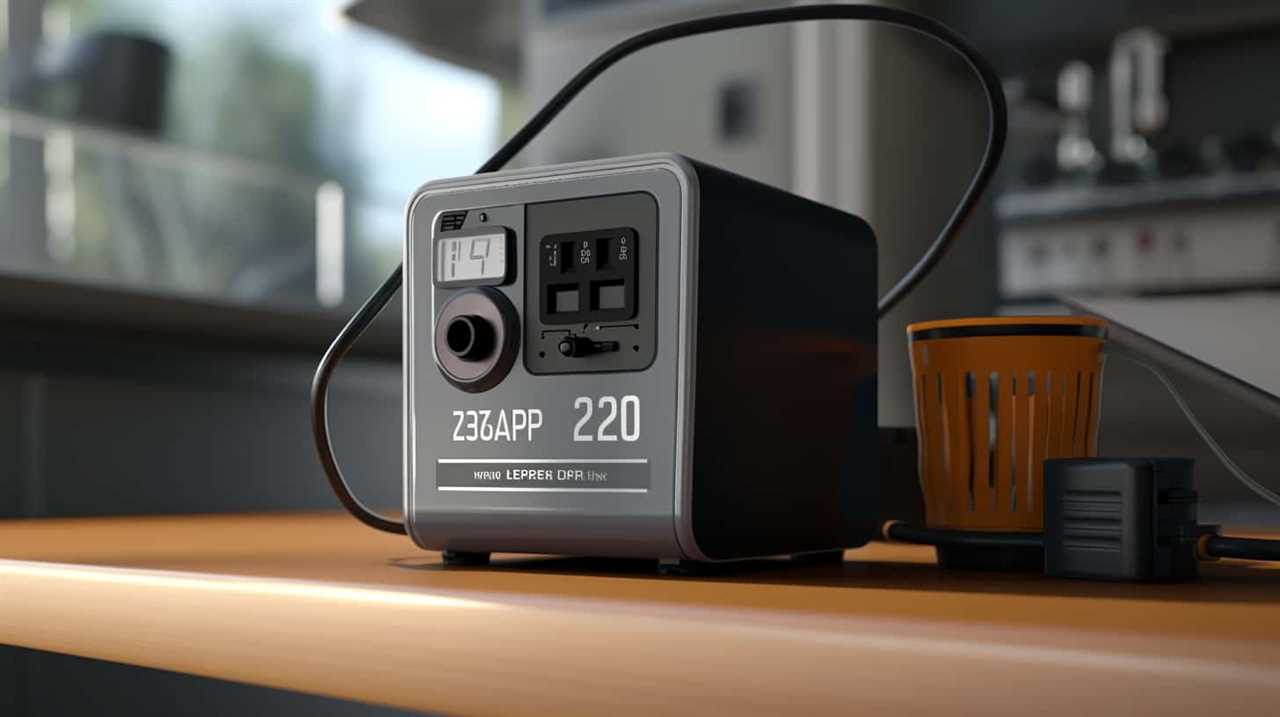
Additionally, recycling helps lower energy consumption and waste disposal costs. Furthermore, the market demand for recycled electrical appliances is growing, creating a viable market for manufacturers. By tapping into this demand, manufacturers can’t only save costs but also generate revenue from the sale of recycled products.
Therefore, embracing recycling as a business strategy can lead to substantial economic benefits for manufacturers.
Resource Conservation Benefits
One of the significant resource conservation benefits of recycling electrical appliances is that we can reduce our reliance on raw materials. By reusing components and materials from old appliances, we can decrease the need for extracting and processing new resources, which in turn mitigates the negative environmental impacts associated with resource extraction. This not only helps in preserving natural resources but also promotes sustainable practices and resource management.
Here are four key ways in which recycling electrical appliances contributes to resource conservation:

- Reduces the demand for raw materials, such as metals and plastics, by utilizing existing resources.
- Decreases energy consumption and greenhouse gas emissions associated with the extraction and production of new materials.
- Extends the lifespan of valuable resources, maximizing their utility and reducing waste.
- Promotes a circular economy by creating a closed-loop system where materials are reused and recycled, reducing the need for new resource extraction.
Social Benefits of Recycling Electronic Devices
We can experience numerous social benefits by actively participating in the recycling of electronic devices.
Recycling electronic devices not only provides cost-effective solutions for managing electronic waste but also encourages community engagement. By recycling electronic devices, we reduce the need for raw materials and energy required to manufacture new products. This helps conserve natural resources and reduces the environmental impact of mining and extraction.
Additionally, recycling electronic devices prevents hazardous materials from ending up in landfills, protecting our soil and water sources from contamination. Furthermore, electronic waste recycling creates job opportunities in the recycling industry and promotes economic growth.
By participating in electronic device recycling, we can contribute to a more sustainable future and foster a sense of responsibility towards our environment.

Now, let’s explore the process of recycling electrical appliances.
The Process of Recycling Electrical Appliances
To continue our exploration of electronic waste recycling, let’s now delve into the step-by-step process of recycling electrical appliances. Recycling electrical appliances is crucial for reducing e-waste and preserving valuable resources. Here is a breakdown of the process:
- Collection: Old appliances are gathered from households, businesses, and recycling centers.
- Sorting: The appliances are sorted based on their materials, such as plastic, metal, and glass.
- Disassembly: Skilled workers dismantle the appliances, separating the components for further processing.
- Recycling: The separated materials undergo various recycling methods, such as shredding, melting, and refining, to extract valuable resources like copper, aluminum, and rare earth metals.
Cost-effective recycling methods, including automation and advanced technologies, are being developed to improve efficiency and reduce environmental impact.
The future of electrical appliance recycling lies in embracing innovative techniques and promoting awareness among individuals and industries to ensure a sustainable and circular economy.

Commonly Recycled Electrical Appliances
When recycling electrical appliances, we commonly recycle a variety of items. Some of the commonly recycled electrical appliances include refrigerators, washing machines, dryers, dishwashers, televisions, computers, and mobile phones.
Recycling these appliances offers several benefits. Firstly, it reduces the need for raw materials, saving energy and conserving natural resources. Secondly, it helps to reduce the amount of electronic waste that ends up in landfills, which can be hazardous to the environment.
Thirdly, recycling electrical appliances allows for the recovery of valuable materials such as copper, aluminum, and precious metals, which can be reused in the production of new appliances. Additionally, recycling helps to reduce greenhouse gas emissions and pollution associated with the extraction and production of raw materials.
How to Prepare Your Appliances for Recycling
Before recycling electrical appliances, it’s important to prepare them properly. This involves cleaning the appliances thoroughly to remove any dirt or residue.

Additionally, hazardous materials such as batteries or refrigerants should be safely removed and disposed of separately.
Cleaning Before Recycling
We can clean our electrical appliances in order to prepare them for recycling. Cleaning before recycling is an important step to ensure the proper disposal of these items. Here are some best practices for cleaning your appliances:
- Remove any detachable parts: Take out any removable components such as trays, shelves, or filters. This will make it easier to clean the appliance thoroughly.
- Use appropriate cleaning methods: Different appliances require different cleaning methods. Consult the manufacturer’s instructions or research online for the best way to clean your specific appliance.
- Use eco-friendly cleaning products: Opt for environmentally friendly cleaning products to minimize the impact on the environment. Avoid using harsh chemicals that can be harmful when disposed of.
- Dry the appliance thoroughly: After cleaning, make sure to dry the appliance completely before recycling. This will prevent any moisture buildup that could lead to rust or damage.
Removing Hazardous Materials
To ensure the proper disposal of our electrical appliances, how can we safely remove hazardous materials before recycling them?
Removing hazardous materials is crucial in preventing environmental contamination and protecting human health.

When it comes to proper disposal methods, it’s essential to follow specific guidelines. Firstly, identify the hazardous materials present in the appliance, such as lead, mercury, or refrigerants.
Use appropriate personal protective equipment, including gloves and goggles, to minimize exposure.
Next, carefully remove these materials from the appliance, ensuring they’re contained and sealed in appropriate containers.
It’s important to consult local regulations and guidelines to determine the proper disposal methods for these hazardous materials.

Additionally, consider contacting a professional waste management company to ensure compliance with safety standards and to facilitate the proper disposal of these materials.
Where to Recycle Electrical Appliances
When considering the recycling of electrical appliances, it’s important to know where these items can be properly disposed of. Here are four options for recycling electrical appliances:
- Local Recycling Centers: Many communities have designated recycling centers where you can drop off your old appliances. These centers have the necessary facilities to safely dismantle and recycle the various components.
- Retailer Take-Back Programs: Some retailers offer take-back programs, where you can return your old appliances when purchasing new ones. These programs ensure that the appliances are recycled responsibly.
- Manufacturer Recycling Programs: Certain manufacturers have their own recycling programs in place. They accept their own brand of appliances for recycling, ensuring that the materials are properly handled.
- Electronic Waste Collection Events: Many cities organize electronic waste collection events periodically. These events provide a convenient and responsible way to dispose of your old appliances.
Responsible Disposal of Non-Recyclable Appliances
When it comes to responsible disposal of non-recyclable appliances, there are several important points to consider.
Firstly, it’s crucial to ensure safe disposal methods are followed to minimize potential risks to human health and the environment.
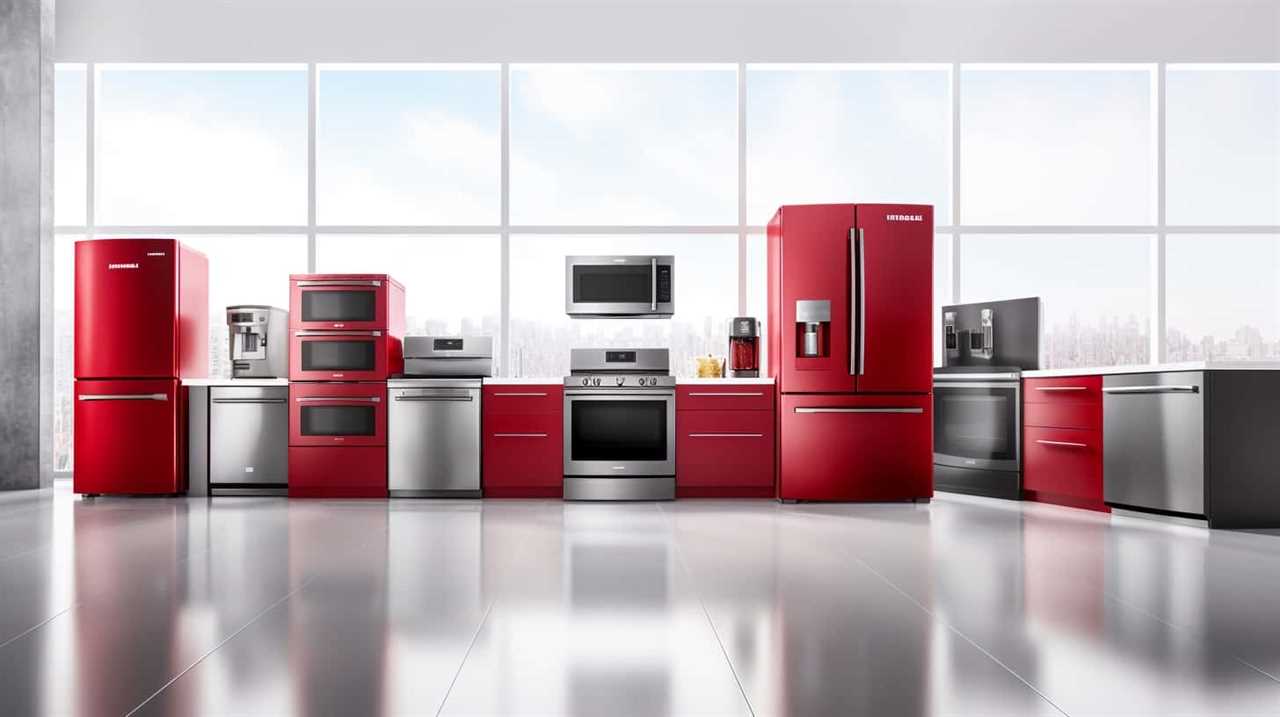
Secondly, the environmental impact of disposing of non-recyclable appliances should be taken into account, as improper disposal can contribute to pollution and resource depletion.
Lastly, exploring alternative disposal options, such as donation or repurposing, can help reduce waste and extend the lifespan of these appliances.
Safe Disposal Methods
We ensure the responsible disposal of non-recyclable appliances by implementing safe disposal methods. When it comes to disposing of appliances that can’t be recycled, it’s crucial to prioritize safety and minimize environmental impact. Here are four safe disposal methods that we employ:
- Landfill Disposal: Appliances are carefully disposed of in designated landfill sites to prevent any leakage of hazardous materials.
- Incineration: Non-recyclable appliances undergo controlled incineration, converting them into energy while ensuring harmful substances are properly contained.
- Hazardous Waste Facilities: Specialized facilities handle the disposal of appliances containing hazardous materials, ensuring their safe containment and treatment.
- Donation and Reuse: Appliances that are still functional are donated to organizations or individuals in need, promoting sustainability and reducing waste.
By following these safe disposal methods, we prioritize the well-being of both people and the environment.

Now, let’s explore the environmental impact considerations of electrical appliance disposal.
Environmental Impact Considerations
To address the environmental impact of disposing non-recyclable appliances responsibly, it’s important to consider the proper management and treatment of hazardous materials.
Electrical waste management plays a critical role in minimizing the adverse effects on the environment. An effective strategy involves conducting an environmental impact assessment to evaluate the potential risks associated with the disposal of non-recyclable appliances.
This assessment helps identify the hazardous substances present in the appliances and assess their potential for contamination and pollution. Once the hazardous materials are identified, appropriate measures can be implemented to ensure their safe and responsible disposal.

These measures may include specialized treatment facilities, such as incineration or encapsulation, to prevent the release of harmful substances into the environment. By prioritizing the proper management of hazardous materials, we can mitigate the environmental impact of disposing non-recyclable appliances.
Alternative Disposal Options
Addressing the environmental impact of disposing non-recyclable appliances responsibly requires exploring alternative disposal options that effectively manage hazardous materials. While recycling is the preferred method for handling electronic waste, not all appliances can be recycled due to their composition or design. In such cases, alternative disposal methods must be employed to minimize environmental harm.
Here are four options for responsible disposal of non-recyclable appliances:
- Incineration: This method involves controlled burning of the appliance in a specialized facility, which can help generate energy while reducing the volume of waste.
- Landfill disposal: Although not ideal, landfilling non-recyclable appliances in designated areas can prevent the release of hazardous materials into the environment.
- Component extraction: Certain valuable components and materials can be extracted from non-recyclable appliances before disposal, reducing the overall waste produced.
- Exporting to developing countries: While controversial, exporting non-recyclable appliances to countries with the capacity to handle them safely can provide opportunities for repair, reuse, or proper disposal.
Innovative Technologies in Electrical Appliance Recycling
One key aspect of innovative technologies in electrical appliance recycling is the use of advanced sorting systems. These systems employ cutting-edge technologies to efficiently and accurately sort different types of electrical appliances for recycling. By utilizing advanced sensors, artificial intelligence, and machine learning algorithms, these sorting systems can identify and separate different materials, such as plastics, metals, and electronic components, from the appliances.

This allows for better processing and recycling of the various components, reducing electronic waste and maximizing resource recovery. Additionally, innovative recycling methods have been developed to address the challenges posed by complex electronic devices, such as smartphones and laptops. These methods employ specialized techniques, such as hydrometallurgical processes and biotechnological approaches, to recover valuable metals and other materials from these devices.
How Individuals Can Contribute to Electronic Recycling Efforts
Now, let’s explore how we can all actively contribute to electronic recycling efforts. By increasing awareness and promoting community involvement, we can make a significant impact on reducing electronic waste.
Here are four ways individuals can contribute:
- Educate Yourself: Stay informed about electronic recycling methods and regulations in your area. Understand the importance of responsible disposal and the environmental consequences of improper disposal.
- Reduce, Reuse, Recycle: Minimize electronic waste by extending the lifespan of your devices through proper maintenance and repair. Donate or sell unwanted electronics that are still functional. Recycle unusable devices at designated collection points.
- Support E-Waste Collection Events: Participate in local e-waste collection events organized by community groups or recycling centers. Encourage your friends, family, and neighbors to do the same.
- Advocate for Change: Engage with local authorities and policymakers to promote electronic recycling initiatives. Support legislation that encourages manufacturers to design products with recyclability in mind.
Frequently Asked Questions
Are All Electrical Appliances Recyclable?
Yes, not all electrical appliances are recyclable. It’s important to consider the environmental impact of recycling them and the proper disposal methods.

Can I Recycle Small Electrical Appliances Like Hairdryers and Electric Toothbrushes?
Yes, we can recycle small electrical appliances like hairdryers and electric toothbrushes. Recycling these items is crucial as it reduces waste, conserves resources, and minimizes the negative impact on the environment.
What Happens to the Hazardous Materials in Electrical Appliances During the Recycling Process?
During the recycling process, hazardous materials in electrical appliances are properly disposed of to minimize their environmental impact. This is done through specialized techniques that ensure the safe removal and treatment of these substances.
Is It Possible to Recycle Electrical Appliances That Are No Longer Functioning?
Yes, electrical appliances that are no longer functioning can be recycled. Recycling them not only reduces the environmental impact of improper disposal but also brings potential benefits such as resource conservation and waste reduction.
How Can I Ensure That My Personal Data Is Protected When Recycling Electronic Devices?
To ensure personal data protection when recycling electronic devices, we recommend data encryption and data wiping. These methods safeguard sensitive information by making it unreadable or permanently removing it, minimizing the risk of data breaches.

Conclusion
In conclusion, the recycling of electrical appliances is crucial for the environment, economy, and society.
One interesting statistic is that recycling one million laptops saves the energy equivalent of powering over 3,500 homes for a year. This highlights the significant impact that electronic recycling can have in conserving energy and reducing carbon emissions.
It’s important for individuals to actively participate in electronic recycling efforts to contribute to a sustainable future.


